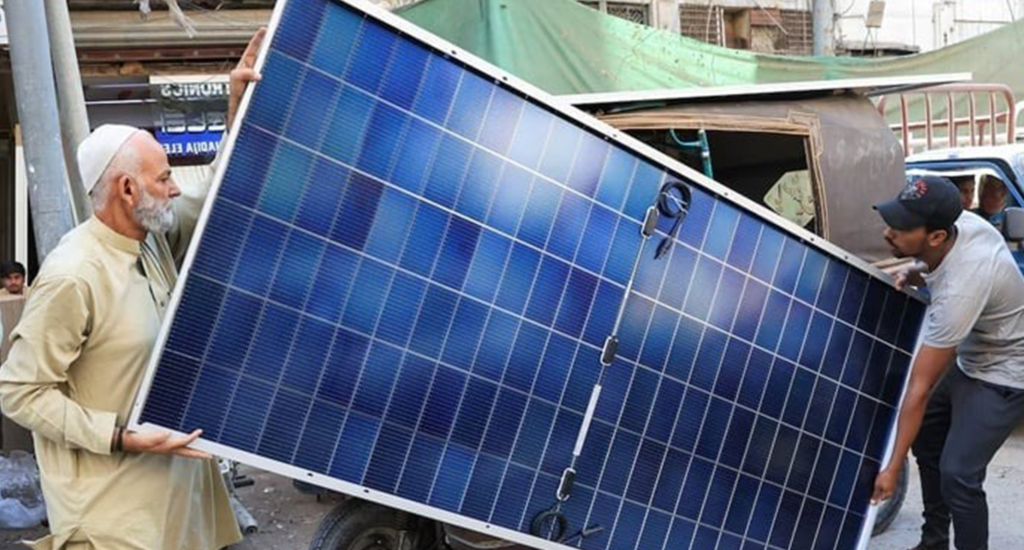Tax on Solar Panels Increased to 18% in Budget FY26
- Abeera Marium Siddiqui
- June 12, 2025
- 3:10 pm
- 38
- Trending

The solar panel tax in Pakistan has been raised to 18% under the 2025–26 federal budget. This new tax applies only to imported solar panels. The goal is to support local manufacturing and create fair competition between foreign and domestic products.
Finance Minister Muhammad Aurangzeb announced the tax during his budget speech in the National Assembly. He said the decision is part of a wider plan to fix the sales tax system. The government also hopes to cut down on imports by promoting local production of solar equipment.
Officials say that local manufacturers have struggled to compete with low-cost imports. These cheaper panels, mostly from China, have made it hard for small and medium-sized Pakistani companies to survive. By applying the solar panel tax, the government aims to boost the local industry and create new jobs.
Pakistan is in the middle of a solar energy boom. High electricity prices and net-metering options have pushed many people to install solar systems. As of March 2025, net-metering capacity reached 2,813 megawatts (MW). That’s an increase from 2,500MW in the previous year, according to the Pakistan Economic Survey 2024–25.
Global solar panel prices have dropped, making solar more affordable. Many consumers rushed to install systems for cheaper and more reliable power. But the new tax could increase costs, making solar less accessible for middle-income households.
In 2024, Pakistan imported over 17 gigawatts (GW) of solar panels—more than several G20 countries. Most of these came from China. A report by Ember, a UK-based think tank, called Pakistan one of the world’s fastest-growing solar markets. Another study by Renewables First said China supplied over 39GW of panels to Pakistan in the past five years.
Despite economic challenges, rooftop solar has helped many families cut energy costs. Still, the solar panel tax might slow down this progress. Households already facing high bills may find it harder to afford solar installations.
Most solar setups in Pakistan aren’t connected to the national grid. This limits how much people can benefit from clean energy. At the same time, wealthier users with solar stop relying on the grid. As they leave, power companies lose top-paying customers. To cover costs, they raise rates for everyone else.
Experts warn that without better policies, clean energy gains won’t reach everyone. Pakistan needs to balance solar growth with fair pricing and smart rules.



